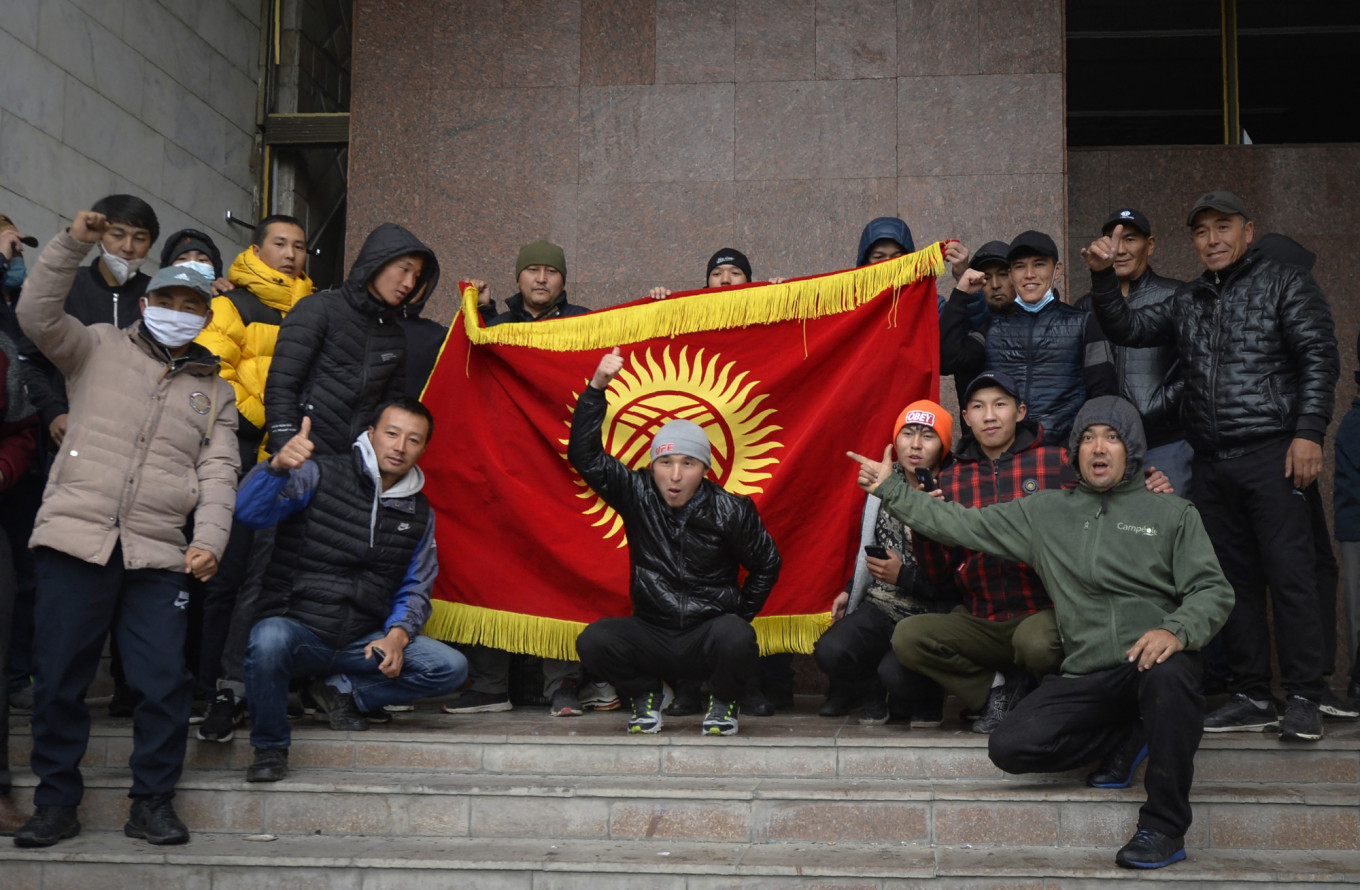
BISHKEK — Store owners in Kyrgyzstan’s capital spent Monday emptying their premises of stock and boarding up the facades. The day after disputed parliamentary elections triggered widespread protests, they wanted to avoid the looting they’d seen in previous revolutions in 2005 and 2010.
By Tuesday the Central Asian nation’s Central Electoral Commission had canceled the result of the vote after a tumultuous night that saw protesters storm government headquarters and clash with riot police, leaving 686 injured and at least one dead.
Activists freed several jailed politicians, including incumbent President Sooronbay Jeenbekov’s predecessor, and opposition politicians formed a so-called “coordination council” with the stated aim of “returning to the rule of law.”
“The protesters didn’t touch a single store, the people made this revolution themselves,” Abdimital Jumabekov, a 35-year old logistics entrepreneur who became unintentionally caught up in the events, told The Moscow Times. “If anyone claims to have led this revolution they are wrong, all the bureaucrats, deputies and leaders fled when they started shooting from water cannons, using pepper spray and throwing flash-bang grenades,” he added.
Jeenbekov in a video address Tuesday accused “a number of political forces” of attempting to seize power and has not stepped down. His whereabouts are unknown, according to local media.
People continued to protest all day Tuesday throughout the center of Bishkek — gathering in groups ranging from a few dozen to several hundred from the city’s central square to the torched seat of government known as the White House.
Prominent activist Askar Almaz uulu, 27, created a group to push for new elections “so that people who know how to work and who want to work come to power.”
He also put out a call on social media for volunteers to protect private property in this uncertain period.
“Our main goal as young residents with an active stance is to stabilize the situation and defend our city from unrest,” he said, adding that the protesters have taken drastic measures because of their mistrust of the authorities and the election.
“It wasn’t the leaders of political parties who seized power but the people,” he said.
Bishkek was calm before sunset Tuesday, with only the occasional burned-out car at the side of the road or broken store window reflecting the violence of the night before.
Volunteers had been quick to mobilize and help municipal services sweep debris from rubber bullets and Molotov cocktails from the streets.
Zarina, 38, and Elzat, 21, said they had spent the day cleaning the rain-soaked central Ala-Too square and the neighboring White House courtyard. They also brought hot tea, a traditional rice and meat dish called plov and savory dumplings for protesters.
“Anyone who’s warm and fed won’t be aggressive,” said Zarina as protesters approached to drop plastic cups and food wrappers into their trash bags. “They get aggressive when they’re cold and hungry.”
Other residents of Bishkek were unfazed by the damage from Monday night’s riots.
The owner of the “Khan Tengri” shawarma cafe overlooking Ala-Too square, who declined to give his name, described the scenes he witnessed Monday night.
“The people retreated and the siloviki [security officials] went on the offensive,” he said, gesturing back and forth to describe the tug of war between the riot police and the demonstrators.
Asked about plans to repair his store window that protesters broke overnight, he shrugged.
“We’ll fix it ourselves. Who am I going to bill?” he said. “We’re with the people.”
